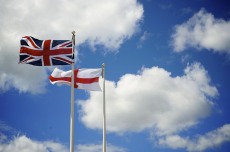
On the morning of the 24th June three days ago, the British people made a historic decision to leave the European Union (EU) in a referendum on the matter. Brexit is, to put it in the simplest language possible, the exit of Britain from the European Union. However, exiting from the EU in light of the referendum isn’t going to be as simple as it might sound.
To begin with, even though the majority of the country voted to leave the EU the other week – with 52% in favour of leaving, 48% in favour of remaining – Britain has not yet exited the organisation. This is because technically, the referendum is not legally binding. In other words, the referendum does not force Britain to leave the EU. It is the UK parliament, with its 650 members from twelve different parties, which will likely vote through a motion for the country to leave the EU based upon the public’s decision. If they don’t, it would be ignoring the direct democratic will of the people.
This will then lead the Prime Minister to trigger an article of law – Article 50 – included in the last treaty made by the European Union, called the Lisbon Treaty (signed up to by all EU member states in 2007). Article 50 allows any member state of the EU to withdraw from the organisation if it so wishes, as the first clause of the article makes clear:
“Any Member State may decide to withdraw from the Union in accordance with its own constitutional requirements.”
When the Prime Minister triggers this article, it gives Britain two years to negotiate the terms of its exit from the EU, economically and politically. However, negotiations may well take much longer than two years to complete – particularly on complex matters such as the conditions for our trade with the EU. Being in the EU we can sell our goods to the EU without our companies having to pay extra for our goods to cross EU member states’ borders, outside, this will not be the case and so a new deal has to be made.
As a result of the time constraints Article 50 places Britain under, the plan is to hold a series of informal negotiations with the remaining 27 EU member states before triggering the article. This would give us the time necessary to get a deal which accommodates both sides.
However, many in Europe are saying they don’t want to have in informal negotiations. They want our current Prime Minister David Cameron to use Article 50 now, so as to negotiate a quick exit.
Another complication is that though it is up to the Prime Minister to trigger the article, David Cameron came out on the day of the result and said that he would resign in three months and would leave it up to his successor to trigger the article and negotiate Britain’s exit from the EU. But we don’t know who his successor will be (though many suspect it will be Boris Johnson) and so we won’t know for some time what our relationship with the European Union might look like after Brexit – or indeed when Brexit will actually happen.
Image: By THOR (Summer Sky in Southsea England) [CC BY 2.0 (http://creativecommons.org/licenses/by/2.0)], via Wikimedia Commons

0 Comment:
Be the first one to comment on this article.